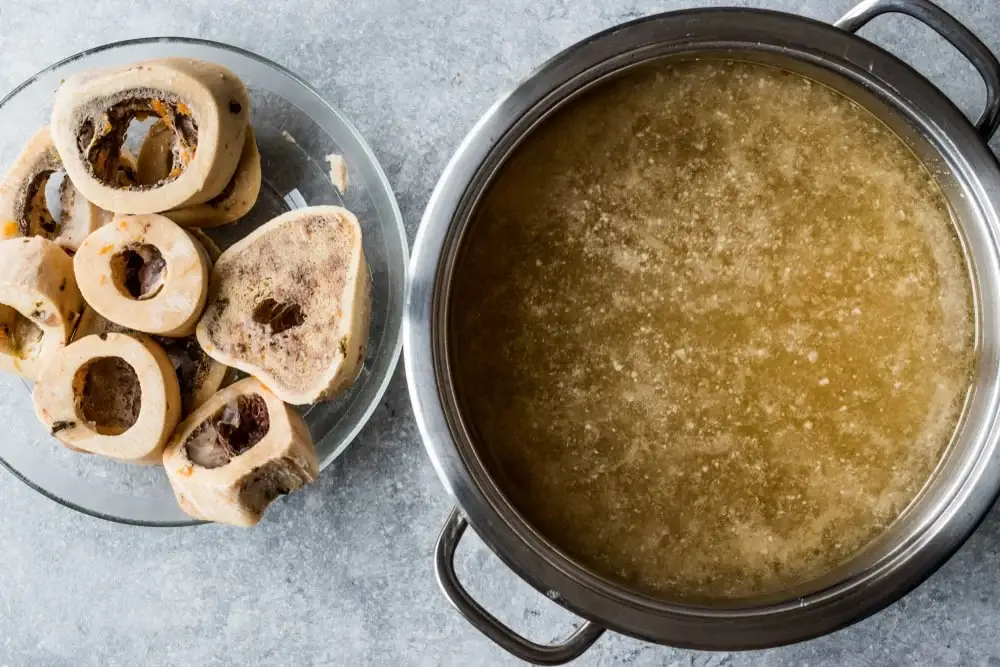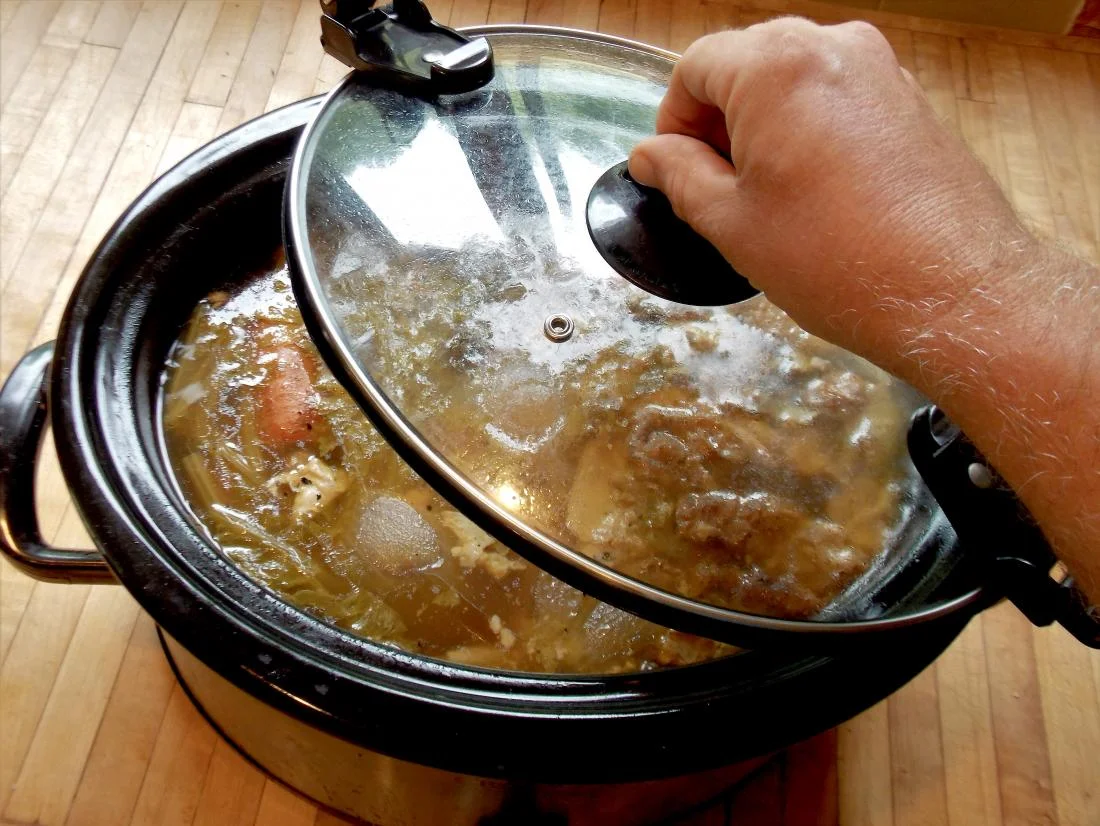Are you or a loved one battling cancer and looking for alternative treatments? Have you heard about the potential benefits of bone broth for cancer patients? As someone who has been researching and studying this topic, I want to share with you everything I’ve learned about the use of bone broth in cancer treatment.
In this article, we’ll explore the science behind using bone broth as a potential aid in fighting cancer. We’ll discuss its healing properties and how it can potentially help boost the immune system and support overall health during chemotherapy. Additionally, we’ll address common concerns and questions surrounding bone broth usage for cancer patients.
Whether you’re currently undergoing treatment or have a family member or friend diagnosed with cancer, I invite you to join me on this journey of discovering if bone broth could be an effective supplement in your fight against cancer. So let’s dive in and explore the possibility of using bone broth as a natural remedy for this disease.
So, bone broth for cancer?
Bone broth has gained popularity in recent years as a healthful and healing food. It is made by simmering bones, vegetables, herbs, and spices for an extended period of time to extract nutrients and minerals from the bones. Many people believe that bone broth can help with various health issues, including cancer.
There is no scientific evidence to support the claim that bone broth can cure or prevent cancer. However, it does contain important nutrients such as collagen, gelatin, amino acids, and minerals like calcium and magnesium which are beneficial for overall health.
Some studies have shown that consuming bone broth may improve gut health by reducing inflammation and promoting the growth of healthy bacteria in the gut. This could potentially benefit those undergoing cancer treatment as they often experience digestive issues due to chemotherapy or radiation therapy.
Additionally, some compounds found in bone broth have been linked to boosting immune function. A strong immune system is crucial for fighting off illnesses like cancer.
However, it’s important to note that while these potential benefits may be helpful for individuals with cancer, they should not replace traditional medical treatments recommended by doctors.
Furthermore, not all bone broths are created equal. Store-bought versions may contain added preservatives or high levels of sodium which can be harmful for those with certain types of cancers or other health conditions.
In conclusion,
while there is no concrete evidence linking bone broth specifically to helping with cancer treatment or prevention,
it does offer valuable nutrients that can contribute to overall wellness.
Consulting with a healthcare professional before making any significant dietary changes is always recommended.
It’s also important to source high-quality ingredients when making homemade bone broth
to ensure maximum nutritional benefits without any potential harmful additives.
While it may not be a miracle cure for cancer,
bone broth can still play a role in supporting one’s overall well-being during their journey towards recovery.
Exploring the Healing Properties of Bone Broth
Bone broth has been celebrated for generations, not just as a comforting dish but also for its remarkable healing properties. This rich, nourishing liquid is made by simmering animal bones—often paired with meat and vegetables—for an extended time. The slow cooking process extracts vitamins, minerals, and collagen from the bones, creating a nutrient-dense broth that warms both body and soul. Many people turn to bone broth during illness or after strenuous workouts because it’s easy on the digestive system while providing essential nutrients like calcium and magnesium.
The benefits of bone broth extend beyond mere nourishment; it may enhance joint health too! Collagen found in the broth supports cartilage integrity, which can be particularly beneficial for those suffering from arthritis or joint pain. Additionally, the amino acids produced during simmering play vital roles in immune function and gut health. Some studies suggest that these compounds might even help reduce inflammation throughout the body—an important aspect of overall well-being. Overall, incorporating this ancient food into modern diets offers not just comfort but potential wellness benefits:
- Supports digestion
- Enhances skin elasticity
- Strengthens joints

The Science Behind Bone Broth and Cancer Treatment
Bone broth, a nourishing elixir made by simmering bones and connective tissues, has garnered attention for its potential health benefits, particularly in the realm of cancer treatment. This age-old remedy is rich in essential nutrients like collagen, amino acids, and minerals that promote healing and support bodily functions. When it comes to cancer recovery, glutamine, an amino acid found in abundance in bone broth, plays a pivotal role. It helps maintain gut health by preserving the integrity of intestinal lining cells which may be compromised during chemotherapy or radiation therapy. Moreover, the anti-inflammatory properties of bone broth can contribute to reducing inflammation often associated with both cancer itself and its treatments.
In addition to physical benefits, consuming bone broth can provide emotional comfort during challenging times. The warmth of a steaming bowl can create feelings of safety and nostalgia; it’s like receiving a hug from within! For those undergoing treatment or recovering from surgery, hydration becomes crucial—bone broth not only hydrates but also delivers vital nutrients needed for energy restoration. A well-balanced diet fortified with nourishing soups can enhance overall wellness while supporting immune function amidst medical challenges. Therefore, incorporating this nutrient-dense potion into meals could serve as more than just food; it might be part of the holistic approach some are seeking on their healing journeys.
Read also: bentonite clay for deodorant
Addressing Concerns and Questions about Using Bone Broth for Cancer Treatment
Many people are curious about the use of bone broth in relation to cancer treatment, as it has gained popularity in health circles. Bone broth is made by simmering animal bones and connective tissues over a long period. This process releases nutrients like collagen, amino acids, and minerals that can be beneficial for overall health. Some believe these nutrients might support the body during challenging times, such as when undergoing cancer treatments like chemotherapy or radiation. However, it’s essential to address concerns regarding its efficacy and safety.
While there’s anecdotal evidence suggesting that bone broth may help alleviate some side effects of cancer treatments—like nausea or fatigue—scientific research on its direct impact is limited. It’s important for patients to consult with healthcare providers before incorporating new foods into their diets during treatment. They should consider how bone broth fits into an overall nutrition plan designed for their specific needs. Additionally, homemade broths can vary widely in quality; ensuring a safe preparation method is crucial to avoid any foodborne illnesses that could complicate recovery efforts.
In summary, while enjoying a warm bowl of bone broth may offer comfort and hydration during tough times, always prioritize guidance from medical professionals over trendy claims when managing health conditions like cancer.
Potential Benefits and Risks Involved in Incorporating Bone Broth into a Cancer Treatment Regimen
Incorporating bone broth into a cancer treatment regimen can provide several potential benefits, but it’s important to approach this addition with care. Bone broth is rich in nutrients, particularly collagen and amino acids like glycine and proline. These components have been studied for their ability to support gut health and strengthen the immune system, which might be crucial during rigorous treatment periods. Additionally, bone broth’s warm nature can offer comfort, helping soothe nausea or digestive issues that often accompany chemotherapy. For many patients, sipping on this nourishing liquid could also serve as a way to maintain hydration and energy levels when solid food feels less appealing.
However, there are risks to consider as well when adding bone broth to one’s diet during cancer treatment. Depending on how it’s prepared, there may be concerns about contaminants or additives if the bones come from animals treated with antibiotics or hormones. Furthermore, while homemade versions are usually safer than store-bought ones filled with preservatives and artificial flavors—
- it’s essential that
- the source of ingredients is trustworthy.
Overall, while bone broth has potential benefits due to its nutritional profile, it should always be used thoughtfully alongside guidance from healthcare professionals who understand individual needs in cancer therapy.
